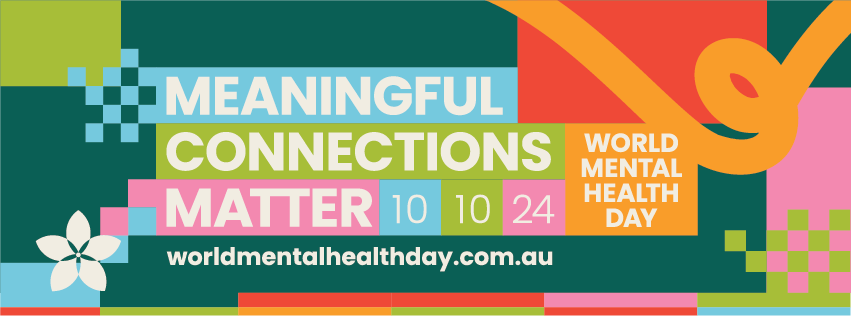Page Contents
Today marks World Mental Health Day, a global initiative aimed at raising awareness about mental health. This year’s theme from Mental Health Australia, ‘Meaningful Connections Matter‘, highlights the crucial role that human connections play in nurturing mental wellbeing.
The Importance of Connection
In our increasingly digital world, the value of genuine human connections cannot be overstated. Research consistently shows that strong social bonds contribute significantly to improved mental health outcomes . Mental health professionals often emphasise that meaningful connections provide emotional support, reduce feelings of isolation, and can even boost our immune system.
Volunteering: A Path to Connection and Wellbeing
One powerful way to build these meaningful connections is through volunteering. By engaging with causes we’re passionate about, we not only contribute to our communities but also enhance our own mental health.
Volunteering Australia’s Evidence Insights: Volunteering and mental health found that, volunteering improved self-assessed psychological wellbeing, self-esteem, happiness, and satisfaction with life. Across multiple studies, people who volunteered scored higher on these metrics than people who did not volunteer. Volunteering is also associated with lower symptoms of depression and anxiety, and lower indicators of suicide risk. The number of hours a person volunteers was also found to be significant, with those who contribute more than 100 hours a year experiencing stronger wellbeing benefits.
- Building New Relationships: Volunteering brings together like-minded individuals, creating opportunities for friendship and professional networking. Many volunteers report forming close bonds with fellow volunteers who share their interests and values.
- Cultivating a Sense of Purpose: Contributing to a cause larger than ourselves can provide a profound sense of meaning. Volunteers often describe feeling more motivated and finding renewed purpose through their service.
- Gaining Perspective: Volunteering often exposes us to diverse experiences and viewpoints, broadening our understanding of the world. This exposure can lead to increased empathy and gratitude.
- Reducing Stress and Anxiety: The act of helping others can release endorphins, reducing stress and improving mood. A study by the University of Exeter found that volunteers reported lower levels of depression and higher levels of life satisfaction compared to non-volunteers.
- Developing New Skills: Volunteering can be an opportunity for personal and professional growth. Many volunteers report improving their communication, leadership, and problem-solving skills through their service activities.
Taking Action
As we observe World Mental Health Day, consider how you can strengthen your connections and support mental health in your community. Local organisations are always in need of volunteers, and many offer flexible opportunities to fit various schedules and interests.
Remember, whether it’s through volunteering, joining a club, or simply reaching out to a mate, every connection matters.




